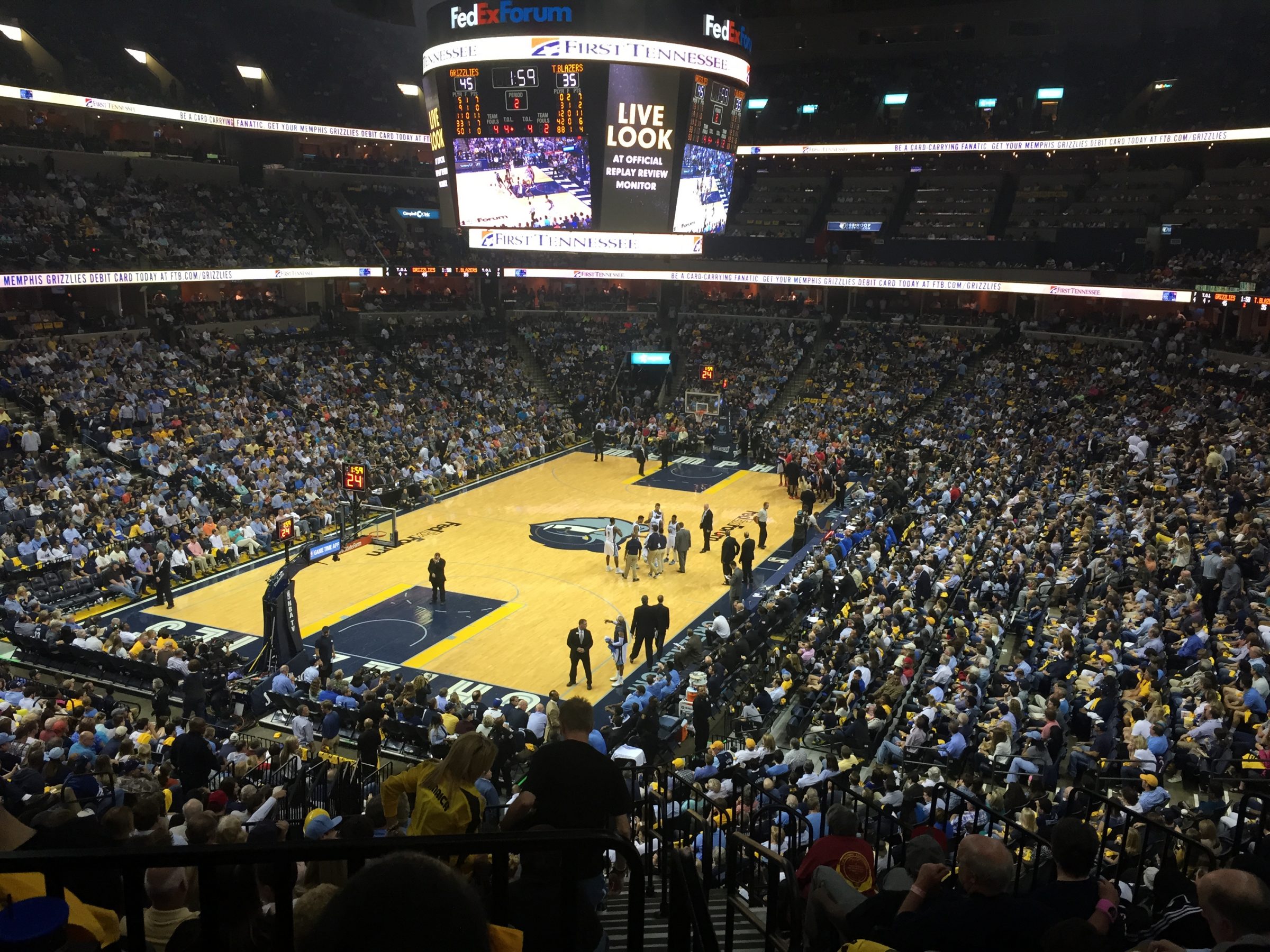The Memphis Grizzlies’ reign of being slightly above average is over. On Wednesday, they lost their ninth straight game to bring their record to 7-13. Head coach Dave Fizdale was fired just two days earlier. The Grizzlies hold the third-longest active run of NBA playoff appearances, but that streak is in serious jeopardy at the quarter mark of the season. To make matters worse, this franchise is in no way prepared for a quick turnaround largely because of the front office’s longstanding commitment to consistently remaining good without ever progressing into legitimate championship contention. The Grizzlies’ struggles and their long road ahead demonstrate why hovering in limbo between mediocrity and the truly elite is always a losing strategy in today’s NBA.
The Vancouver Grizzlies were established as an expansion team in 1995 and remain one of the newest franchises in the league. In their early years in Canada, they had some fun players to watch like Shareef Abdur-Rahim and Mike Bibby, but found little success, failing to make the playoffs. In 2001, the ownership submitted an application to move the team to Memphis which was subsequently granted. That same year, the Grizzlies traded for Pau Gasol on draft night, who went on to win Rookie of the Year. By the 2003-2004 season, the team had added some solid role players in Shane Battier, Jason Williams, James Posey, and Mike Miller and were poised for the franchise’s first winning season. In 2004, under the Coach of the Year, Hubie Brown, the Grizzlies won 50 games and made the playoffs. The team went on to lose in the first round, but the season was a powerful statement and gave the Memphis faithful a taste of basketball success. The next two years produced the same postseason result and the fanbase grew hungry for more. Unfortunately, that mid ‘00s core of players was unable to keep it up and the team plunged into relative obscurity over the next few years.
During those dismal seasons, Memphis began acquiring some pieces that set them up for the years to come. In the 2006 offseason, the Grizzlies traded fan-favorite Shane Battier for Rudy Gay, the eighth overall pick of that year’s draft. With the fourth pick of the 2007 draft, they selected Mike Conley out of Ohio State. In the blockbuster move of 2008, the Grizzlies decided to trade franchise centerpiece Pau Gasol for a package of players including the draft rights to his brother, Marc. Memphis put the finishing touches on its new core of talent with the additions of All-Star power forward Zach Randolph in 2009 and defensive stalwart Tony Allen in 2010. It was a new decade and the team was ready to get back to its winning ways from a few years before.
In 2010-2011, the Grizzlies had a respectable regular season, winning 46 games and grabbing the eighth seed in a competitive Western Conference. However, the team had lost Gay, their second leading scorer, to injury, and were slated to face the mighty San Antonio Spurs in the first round of the playoffs. Not many people expected much competition between the two teams. With all odds against them, the Grizzlies were able to pull off one of the most outstanding upsets in recent NBA history and took down the Spurs, winning the series 4-2. They fell to the Oklahoma City Thunder in the next round, but the Spurs series victory inspired hope in the current core of players and set the stage for the six straight years of playoff appearances that followed.
In 2012, the Grizzlies returned to the playoffs, but were knocked out in the first round by the Los Angeles Clippers. It was the 2012-2013 season that stood out as the greatest in Memphis history. The team won a franchise record 56 wins, which was only good enough for a fifth seed in the cutthroat Western Conference. Despite their historic regular season, the Grizzlies were by no means a serious contender for the title. Nonetheless, the team surprised many, knocking out the Clippers and Thunder in the first two rounds. Unsurprisingly, the Spurs got their revenge in the next round, sweeping Memphis, but not before the Grizzlies’ furthest postseason progression in franchise history. They have not returned to the Western Conference Finals since.
Of course, reaching the playoffs in seven straight years is quite respectable. What was troubling was how predictable the Grizzlies’ seasons became. Year in and year out they would reach the playoffs as a middle to bottom seed in the Western Conference and get knocked out early on. Three of the past five years it has been the Spurs who have shown Memphis the door. The only real surprises are when the Grizzlies advance one or two rounds, but, even then, they never come within a sniff of the title.
The front office has opted for stability, seemingly afraid to make a significant move that might ruin what they had. But they never had enough. As every other team cycled through franchise cornerstones making major changes over the last decade, the Grizzlies stayed true to their core and their “Grit and Grind” style. They have been caught between serious contention and tanking for years now, unwilling to make the sacrifices necessary to send the franchise in either direction.
Of course, the Grizzlies have made minor improvements over the last few years. Bringing Vince Carter to the the team back in 2014 added more veteran leadership. JaMychal Green, signed in 2015, has been a solid contributor over the last couple seasons. Wayne Selden in 2016 and Dillon Brooks this year seem like good draft picks. Most recently, Tyreke Evans has resurrected his career in Memphis after signing with the team in the 2017 offseason. Even internally there have been some noteworthy upgrades. In 2016, Marc Gasol became more of a threat, as he added an efficient three point shot to his offensive arsenal. Conley’s level of play has risen to the point where he should have at least one All-Star Game appearance by now. Yet none of these improvements made this team a title contender.
The Memphis front office prefers to avoid offseason drama. Instead of trying to add a major piece, general manager Chris Wallace has chosen to secure what the team already had. In 2015, he signed Gasol to a massive five-year, 110 million dollar contract extension. A year later, Wallace signed Conley to what was then the richest contract in NBA history. In July 2016, the Grizzlies finally made a splash, signing Chandler Parsons to a four-year, 94 million dollar contract. Aside from the fact that Parsons has been an utter disappointment in Memphis, you cannot help but get the sense that he was signed as an accessory. It was clear he was brought in to help Gasol and Conley maintain the culture already in place. Wallace has always chosen security over assertiveness to the Grizzlies’ detriment.
On top of that, the front office was never willing to commit to tanking either. With the promise of a playoff appearance every year, Wallace was always resistant to breaking up the team, despite the fact that tanking is clearly the best way to accelerate a rebuild through the draft. Even comically exaggerated tanking like the ‘Trust the Process’ movement in Philadelphia appears successful. But that was never an option in Memphis.
Now the Grizzlies face a grueling rebuild. Once considered a stable franchise, they will now have their fourth head coach in six years. Conley is 30 and Gasol is 32 and both are on huge deals. Gay, Randolph, and Allen have all moved on without much in return. Wallace will have the unenviable task of finding suitors willing to give him a solid package for one of his aging stars with massive contracts. The good news is that Brooks, a 2017 second round pick out of Oregon, has flashed some potential and the team also owns its first round pick in a loaded 2018 draft. Memphis has a chance to undertake a successful rebuild and return to the playoffs in the next few years, but one cannot help thinking that this should have come earlier. After this chaotic start to the season, Grizzlies fans must be left wondering if the end results have been worth the front office’s stubborn resistance to change over the last decade.



